Clempitrat
On this page, you find all documents, package deals, and flashcards offered by seller clempitrat.
- 41
- 0
- 7
Community
- Followers
- Following
48 items
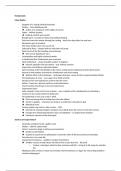
Frankenstein
Notes on: - quote analysis - narratives and genres - analysis of the novel - characters - the creature - symbols and themes
- Package deal
- • 4 items •
- Frankenstein - symbols and themes • Summary
- Frankenstein - the creature • Summary
- Frankenstein - characters • Summary
- Frankenstein - analysis • Summary
Notes on: - quote analysis - narratives and genres - analysis of the novel - characters - the creature - symbols and themes
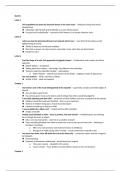
Frankenstein - quote analysis
Analysis of quotes based off of lessons, there are some chapters that do not have any analysis as we did not do close textual study of those sections
- Package deal
- Summary
- • 5 pages •
Analysis of quotes based off of lessons, there are some chapters that do not have any analysis as we did not do close textual study of those sections
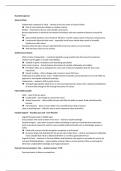
Frankenstein - narratives and genres
Notes on narrative and genres that influenced/are a part of the novel and important context on Mary Shelley and the publication of the novel
- Package deal
- Summary
- • 5 pages •
Notes on narrative and genres that influenced/are a part of the novel and important context on Mary Shelley and the publication of the novel

Frankenstein - analysis
Notes based off of Massolit lectures on a range of topics/contexts regarding the novel
- Package deal
- Summary
- • 6 pages •
Notes based off of Massolit lectures on a range of topics/contexts regarding the novel
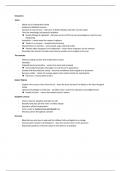
Frankenstein - characters
Brief notes on the major characters within the novel
- Package deal
- Summary
- • 1 pages •
Brief notes on the major characters within the novel
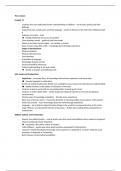
Frankenstein - the creature
Notes on chapter 11 and contexts relating to the creature
- Package deal
- Summary
- • 1 pages •
Notes on chapter 11 and contexts relating to the creature
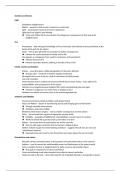
Frankenstein - symbols and themes
Notes on some of the symbols and themes present in the novel
- Package deal
- Summary
- • 2 pages •
Notes on some of the symbols and themes present in the novel
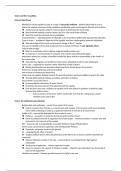
Politics of the Late Republic
Notes on: - Cicero as orator - In Verrem 1 - Cicero and the res publica - Caesar as popularis and dictator - Cato and the politics of the optimates - Cicero as correspondent - Background of the late republic
- Package deal
- • 5 items •
- POLTR - the background of the late republic • Summary
- POTLR - Cicero as correspondent • Summary
- POLTR - Cato and the politics of the optimates • Summary
- POTLR - Caesar as popularis and dictator • Summary
- POTLR - Cicero and the res publica • Summary
Notes on: - Cicero as orator - In Verrem 1 - Cicero and the res publica - Caesar as popularis and dictator - Cato and the politics of the optimates - Cicero as correspondent - Background of the late republic
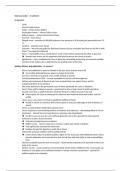

PORLT - Cicero as orator, In Verrem 1
Notes on: - courtroom setting, partial delivery & subsequent publication of Verrine speeches, form, structure and style of Roman legal oratory - including devices such as anaphora, apostrophe, tricolon and hyperbole, ways in which the speech is typical of Roman rhetorical practice, themes of corruption, justice and necessity of upholding the state, portrayal of Verres and his corruption and how this is created
- Book
- Summary
- • 4 pages •
Notes on: - courtroom setting, partial delivery & subsequent publication of Verrine speeches, form, structure and style of Roman legal oratory - including devices such as anaphora, apostrophe, tricolon and hyperbole, ways in which the speech is typical of Roman rhetorical practice, themes of corruption, justice and necessity of upholding the state, portrayal of Verres and his corruption and how this is created


POTLR - Cicero and the res publica
Notes on: Cicero’s ideas about the ideal state and how it had developed in Rome - role of concordia ordinum (’agreement of the orders’), ideal state of affairs as cum dignitate otium (’peace with dignity’), how his actions during his career can be rationalised with his political ideals, his attempt to reconcile senators and equites in concordia ordinum and the reasons why this failed, explanation of his relationships with and attitudes towards: optimates - including Cato, populares - i...
- Book & Paket-Deal
- Summary
- • 4 pages •
Notes on: Cicero’s ideas about the ideal state and how it had developed in Rome - role of concordia ordinum (’agreement of the orders’), ideal state of affairs as cum dignitate otium (’peace with dignity’), how his actions during his career can be rationalised with his political ideals, his attempt to reconcile senators and equites in concordia ordinum and the reasons why this failed, explanation of his relationships with and attitudes towards: optimates - including Cato, populares - i...
